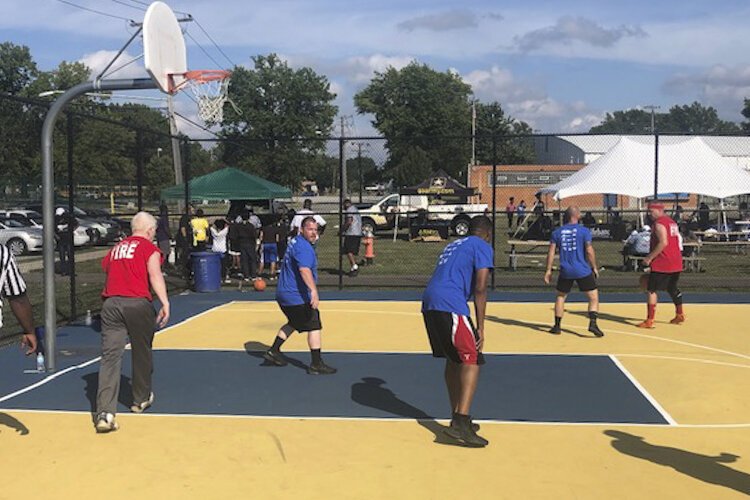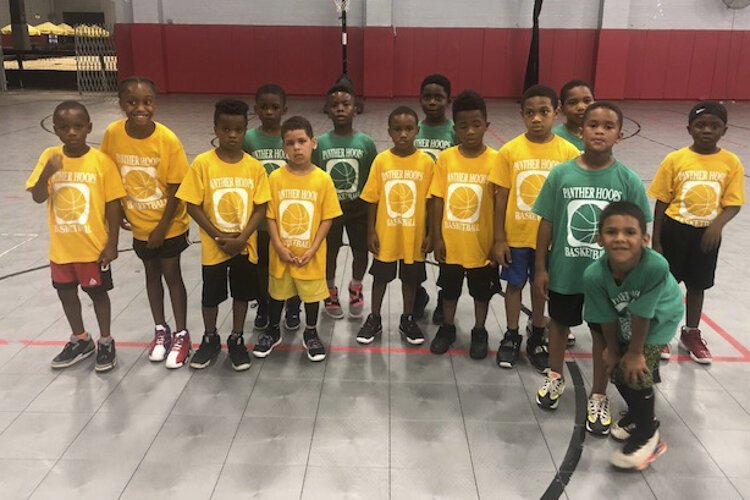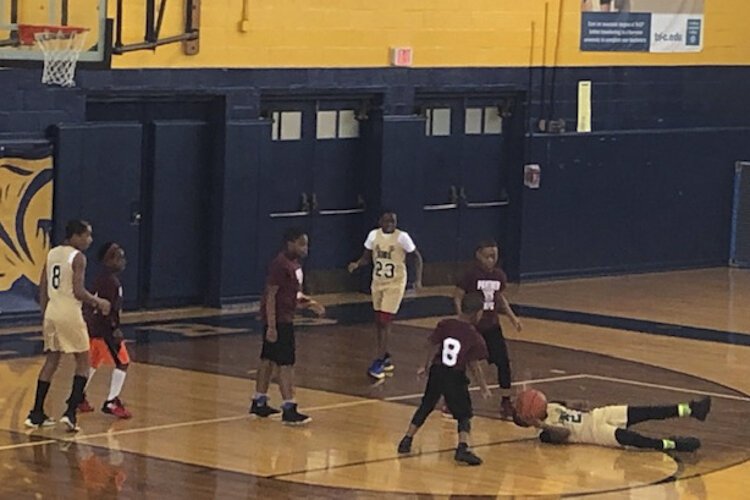Hoop dreams: One Euclid resident's mission to bring basketball courts back to the community
Euclid resident Albert Hardin may be a lifelong basketball lover, but he wasn’t exactly a natural in the early days. “I was horrible,” he says with a laugh. “My brother nicknamed me ‘Tragic Johnson.’”
But that didn't stop Hardin from spending many a summer day on the basketball court as a young boy growing up in Cleveland's Kinsman neighborhood. Just not at the local park—“lots of nefarious activity there,” says Hardin.
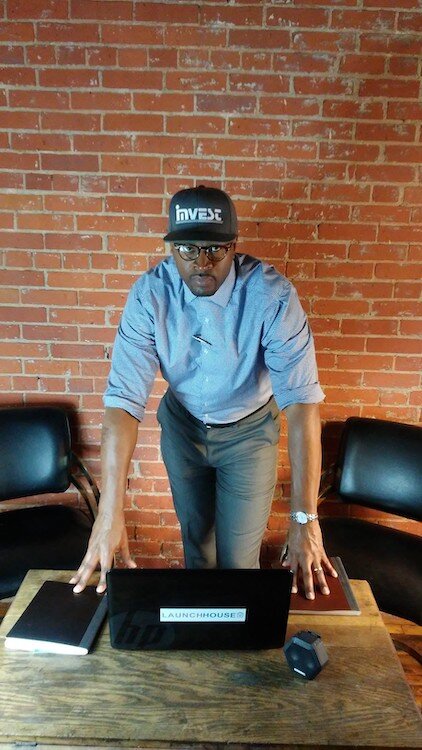 Instead, some neighbors—the Wells family—opened their backyard to any kids who wanted to shoot hoops in peace. Basketball skills (or a lack thereof) came second to forging relationships with others and staying active. “It was a safe place, and a conduit to learning about life in the community,” Hardin says.
Instead, some neighbors—the Wells family—opened their backyard to any kids who wanted to shoot hoops in peace. Basketball skills (or a lack thereof) came second to forging relationships with others and staying active. “It was a safe place, and a conduit to learning about life in the community,” Hardin says.
Hardin has never forgotten those backyard pickup games, or the profound impact that they had on his young self. Now, inspired by the generosity of the Wells family so many years ago, he plans to build public basketball courts—safe and open to all—for the youth of Euclid.
How many kids have missed out on camaraderie, sportsmanship, and personal growth due to the lack of community courts? No more, if Hardin has a say.
Unfortunately, it hasn’t always been smooth sailing. His first effort, turning a vacant lot on Shirley Avenue into a small court, was halted by zoning committee red tape. That taught Hardin that he couldn’t make his vision for “Community Court Concepts” happen all by himself.
Although he was disappointed by this setback, the experience put Hardin in touch with powerful (and committed) allies in both city and regional government. Alongside Roger Sikes of the Cuyahoga County Board of Health, Ward 3 Councilwoman Taneika Hill, and Euclid Recreation Director Mac Stephens, Hardin formed a coalition to bring his dream to life.
Like the best teams, their respective talents mesh seamlessly. Hardin’s passion, Stephens’ deep roots in Euclid’s sports community, and the governmental know-how of Sikes and Hill put the basketball project back on track.
“People vote with their feet,” says Sikes, grants program manager for Cuyahoga County Board of Health. “It’s clear that Euclid youth want to play basketball, want to get out there and engage on the court. Now, it’s time for us to invest in them.”
Nothing but net
In moving forward, the coalition has pinpointed a vacant area between Bluestone Elementary School and Imani Church as the ideal spot for the first courts. Located on East 260th Street on Euclid's south side, Bluestone offers enough space for two full basketball courts on school property. And not just any courts, but ones that the neighborhood can take pride in.
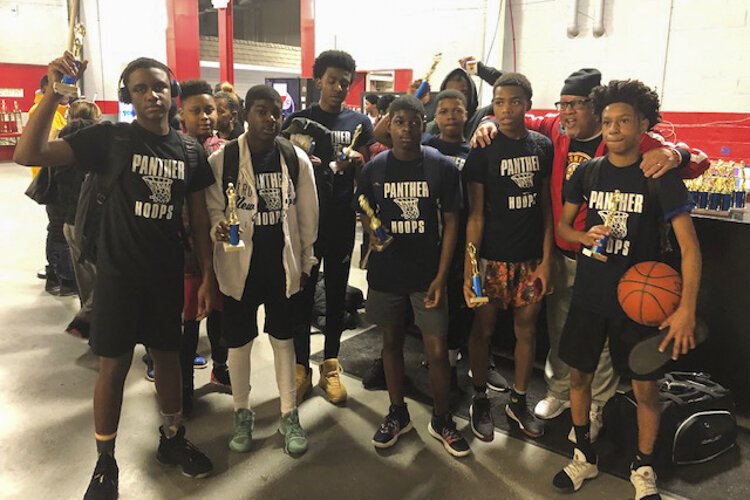 Picture it: Smooth pavement with striping for the keys, three-point lines, and sturdy backboards and rims. No cheap equipment or cracked courts that make dribbling impossible.
Picture it: Smooth pavement with striping for the keys, three-point lines, and sturdy backboards and rims. No cheap equipment or cracked courts that make dribbling impossible.
“We want to make sure that the finished courts are something that Euclid feels really good about,” says Sikes. “Basketball courts might seem like a surface issue, but it gets deep at social justice. This is something of substance, and we hope it will demonstrate deep respect for the community."
As such, the coalition’s focus takes a wider aim than just basketball. “The idea is to take it a step further and bring in motivational speakers, host organized activities, and provide tutoring for the kids,” says Stephens. “We’re trying to address the life skill needs that many young people have in order to put them on a successful path.”
Hardin agrees. “The biggest benefit for the community is opportunity. It’s not just a basketball court. It’s a conduit to get kids involved, learning about teamwork, and building relationships on and off the court.”
Now, all that’s left to do is pay for it.
Thankfully, the coalition has won plenty of support. Mayor Kirsten Holzheimer Gail fully backs the project, having earmarked $50,000 in community development block grants to make it happen.
“It’s notable that city leadership is putting their weight behind this project,” says Sikes. “They understand the value of public basketball courts and how this issue relates to their residents.”
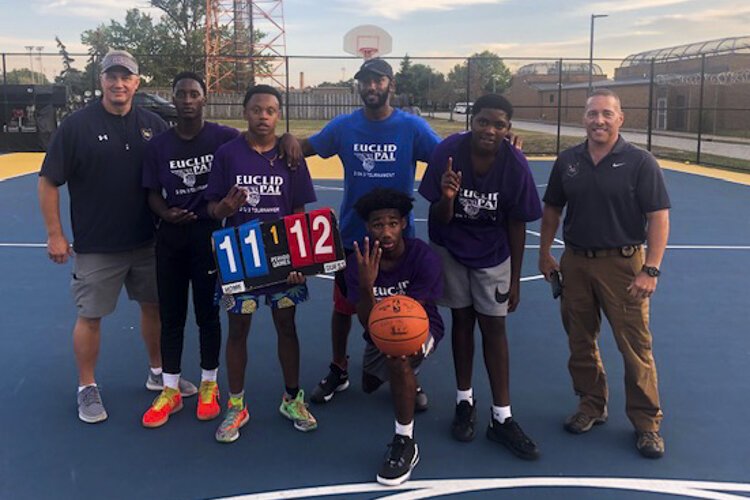 Still, with total costs projected to rise as high as $100,000, the job remains far from done. The coalition is busy pursuing grants and other financial backing to make up the difference, while also weighing resident feedback on the courts’ design and positioning.
Still, with total costs projected to rise as high as $100,000, the job remains far from done. The coalition is busy pursuing grants and other financial backing to make up the difference, while also weighing resident feedback on the courts’ design and positioning.
Considering the success of the few existing community basketball courts in Euclid, building more seems a wise investment. A similar setup to the proposed Bluestone Elementary School plans—two full courts side by side—teems with players at the city’s Memorial Park. (The courts were installed in 2013.) Interestingly, everyone takes ownership of the courts, self-regulating the games so that younger players get one court and older kids the other.
“We see youth creating fair spaces so that more people can play,” says Sikes. “Two full courts make that possible.”
Furthering a sense of community
If the coalition succeeds in building these courts, it could become the latest example of basketball benefiting the Euclid community. Case in point: Panther Hoops, a Euclid Recreation Department youth program that uses sports to emphasize personal development, education, and community service. What started two decades ago with 60 participants has blossomed into leagues and clinics that now draw hundreds of kids to the NEO Sports Plant.
Stephens, who runs Panther Hoops, says the program’s benefits extend far beyond a better jump shot.
“Our philosophy is to affect kids from a social aspect,” he says, “helping them to take responsibility for their behavior in the community. There’s an academic responsibility, too. We encourage our volunteer coaches to ask their players about how they’re doing in school and to stress the importance of always giving full effort.”
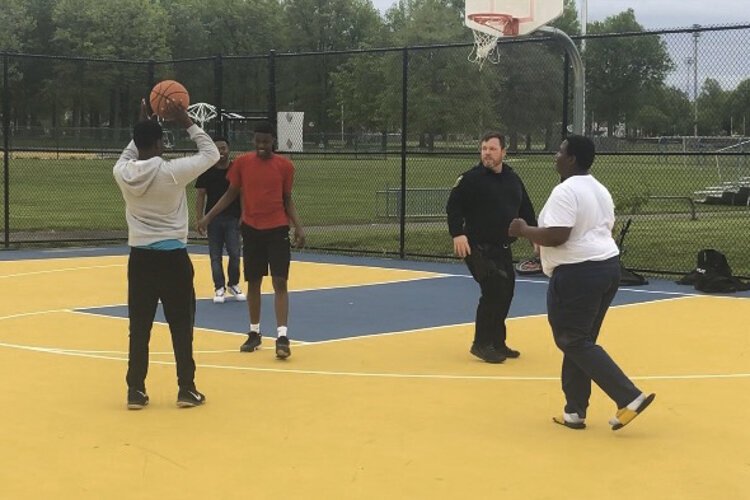 In September, Euclid’s Police Athletic League hosted its first 3-on-3 basketball tournament. It was a Saturday full of hoops, but also free haircuts, a DJ, and hot dogs and hamburgers for all. Events like this cultivate better understanding and reduce tensions in what has, at times, been a fraught relationship between Euclid police and citizens.
In September, Euclid’s Police Athletic League hosted its first 3-on-3 basketball tournament. It was a Saturday full of hoops, but also free haircuts, a DJ, and hot dogs and hamburgers for all. Events like this cultivate better understanding and reduce tensions in what has, at times, been a fraught relationship between Euclid police and citizens.
“It gave the police an opportunity to connect with the community,” says Stephens. “It was just a nice event that brought everyone together.”
And that’s what the coalition’s basketball court project is all about. “I’m not looking for any financial ROI here,” says Hardin. “All I care about is keeping kids on the right path to becoming productive citizens.”
It's full circle for Hardin, who's ready to pay it forward: “The little kid who couldn’t play basketball all those years ago just wants to return the favor to his community.”

